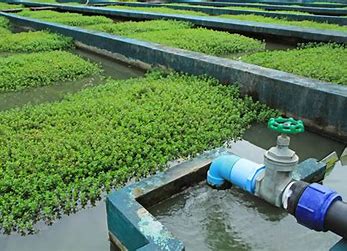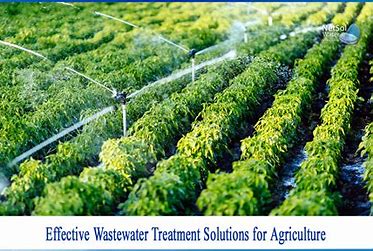
Introduction
Wastewater treatment for agriculture plays a crucial role in ensuring sustainable food production and protecting the environment. By effectively treating wastewater, farmers can improve crop yields, maintain soil quality, and mitigate the negative impacts of untreated wastewater on agricultural products. This article provides an overview of wastewater treatment for agriculture, discussing its historical background, key concepts, main discussion points, case studies, current trends, challenges, and future outlook.
Historical Background
The evolution of wastewater treatment for agriculture can be traced back to ancient civilizations where various practices and techniques were employed to manage wastewater. From the development of irrigation systems in Mesopotamia to the use of wastewater for fertilization in ancient Rome, historical practices have paved the way for modern wastewater treatment methods in agriculture.
Key Concepts and Definitions
To understand wastewater treatment for agriculture, it is important to define key concepts such as wastewater, wastewater treatment, agricultural wastewater, and water reuse. Wastewater refers to any water that has been contaminated by human, industrial, or agricultural activities. Agricultural wastewater specifically pertains to water contaminated through irrigation runoff and animal waste. Various treatment processes, including physical, chemical, and biological methods, are involved in wastewater treatment. Moreover, water reuse, particularly in agricultural settings, offers numerous benefits such as conserving water resources and reducing the need for freshwater sources.
Main Discussion Points
Importance of Wastewater Treatment for Agriculture
The impact of untreated wastewater on agricultural products and soil quality cannot be underestimated. Untreated wastewater can introduce harmful pathogens, heavy metals, and other pollutants into the soil, posing risks to both crop health and human health. However, effective wastewater treatment can improve crop yields and ensure sustainable agriculture by removing contaminants and providing essential nutrients to the soil.

Wastewater Treatment Techniques for Agriculture
Wastewater treatment techniques for agriculture can be categorized into primary, secondary, and tertiary treatment methods. Primary treatment involves the removal of large solids through screening and sedimentation. Secondary treatment utilizes biological processes, such as activated sludge, to further remove organic matter and pathogens. Tertiary treatment methods, including filtration and disinfection, provide an additional level of purification. Furthermore, innovative technologies and approaches, such as membrane filtration and constructed wetlands, are being explored to enhance wastewater treatment in agricultural settings.
Wastewater Reuse and its Applications in Agriculture
Wastewater reuse in agriculture offers significant benefits, but it also presents challenges. Reusing treated wastewater for irrigation can conserve freshwater resources, reduce the demand for chemical fertilizers, and enhance soil fertility. However, ensuring the safety of wastewater reuse requires adherence to regulations and guidelines. Successful examples of wastewater reuse projects in agriculture highlight the potential for sustainable water management practices.
Case Studies or Examples
Case studies provide concrete examples of successful wastewater treatment implementation and the consequences of untreated wastewater. These case studies can illustrate the positive impacts of wastewater treatment on agriculture and the environment. They can also shed light on the detrimental effects of untreated wastewater on agricultural productivity and the surrounding ecosystem. Additionally, the integration of wastewater treatment and irrigation systems in specific agricultural operations showcases the practical applications of sustainable water management practices.

Current Trends or Developments
Recent research findings have led to innovative wastewater treatment technologies for agriculture. Advanced monitoring and control systems enable real-time data collection and optimization of treatment processes. Furthermore, the integration of renewable energy sources, such as solar and wind power, in wastewater treatment facilities contributes to sustainability and cost-efficiency.
Challenges or Controversies
Despite the benefits, challenges and controversies surround agricultural wastewater reuse. Concerns over environmental and health risks associated with the reuse of treated wastewater need to be addressed through rigorous monitoring and adherence to regulations. Public perception and acceptance of using treated wastewater in food production remain crucial in ensuring consumer confidence and market viability. Additionally, the disposal of sludge generated during wastewater treatment poses challenges in agricultural settings, requiring proper management and disposal methods.
Future Outlook
Advancements in wastewater treatment technologies for agriculture hold great potential. Emerging technologies, such as nanotechnology and advanced oxidation processes, can further enhance the efficiency and effectiveness of wastewater treatment. With increasing global water scarcity, there is a growing focus on sustainable water management practices in agriculture. Policies and regulations play a significant role in shaping the future of wastewater treatment for agriculture, emphasizing the importance of integrating water scarcity and sustainability considerations into agricultural practices.

Conclusion
Wastewater treatment for agriculture is vital in ensuring food security and environmental sustainability. By understanding the historical background, key concepts, main discussion points, and current trends in wastewater treatment for agriculture, we can pave the way for innovative and sustainable practices. The challenges and controversies surrounding agricultural wastewater reuse must be addressed to gain public acceptance and mitigate potential risks. Ultimately, prioritizing wastewater treatment in agriculture will contribute to a more sustainable and resilient food production system.
References
– List of relevant academic papers, books, reports, and websites for further reading and research on wastewater treatment for agriculture.




